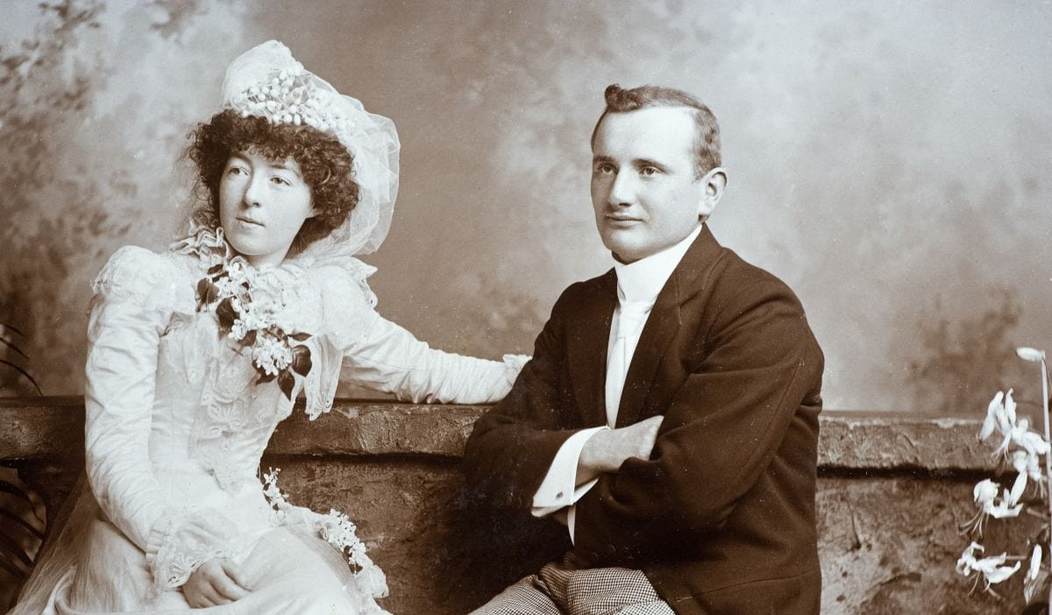Give credit where credit is due — columnist Peggy Noonan deserves a lot of kudos for articulating something that many men of a certain age have been wondering during the orgy of accusations against men for being louts and boors with women.
Where are all the “gentlemen”?
All the stories we’ve read the past few months about predators—not those accused of rape and sexual assault, which are crimes, but of general piggishness, grabbiness, manipulation and power games—have a common thread. The men involved were not gentlemen. They acted as if they’d never heard of the concept.
We have lost track of it. In the past 40 years, in the movement for full equality, we threw it over the side. But we should rescue that old and helpful way of being. The whole culture, especially women, needs The Gentleman back.
A person of the cultural left would say that is a hopelessly patriarchal thing to say. But one thing the #MeToo movement illustrates is that women are often at particular risk in the world, and need friends and allies to stand with them. That would be men. And the most reliable of them are gentlemen.
There are a million definitions of what a gentleman is, and some begin with references to being born to a particular standing. But in America any man could be one who had the guts to withstand the demands.
When I was growing up in the 1960s, I learned what a gentleman was by observing my father. He was strong without being a bully. He respected people — especially women — without being obsequious. He was solicitous of other people’s feelings. He was empathetic toward those less fortunate. He was kind, loving, and attentive to his wife. He was somewhat reserved, but that was probably due to his upbringing in an immigrant Irish family.
I don’t think he ever gave me instructions on how to treat a female except to say gentlemen don’t hit women. When I began to date, I knew what the word “no” meant and always proceeded under the assumption that the woman would tell me if I was doing something that made her uncomfortable. As a good Catholic boy, I didn’t try and stretch the boundaries anyway, even though I realize today that many women are incapable — for one reason or another — of saying “no” to a man.
The above may be one definition of a “gentleman.” But Noonan tells us that it is more than that:
A gentleman is good to women because he has his own dignity and sees theirs. He takes opportunities to show them respect. He is not pushy, manipulative, belittling. He stands with them not because they are weak but because they deserve friendship. Once at a gathering of women in media, I spoke of a columnist who years before had given me helpful critiques of my work and urged me on. “A gentleman is an encourager of women.”
It goes deeper than memorizing and repeating certain behaviors, such as standing when a woman or an older person enters the room. That is a physical expression of inner regard. Being a gentleman involves not only manners but morals. The 19th-century theologian John Henry Newman —an Anglican priest who became a Catholic cardinal—said a gentleman tries not to inflict pain. He tries to remove the obstacles “which hinder the free and unembarrassed action of those about him.” He is “tender toward the bashful, gentle toward the distant, and merciful toward the absurd. . . . He is never mean or little in his disputes, never takes unfair advantage.”
I remember the first woman I went out with who criticized me for holding a door for her. It shocked me to my core. (No, I never went out with her again.) The idea of gentlemanly conduct has become wrapped up in the feminist mystique that places everything a man does in the context that there’s only one thing on his mind and “chivalry” is just another means to achieve it.
For every pig, every lout, every brute, every man who acts like an animal with women, there is probably a man who taught them to act that way, consciously or subconsciously. This sort of aggressive behavior toward women manifests itself in the kind of pawing, grabbing, pinching, leering, and sexualizing of women we are seeing reported today. It is demeaning and dehumanizing.
Gentlemen do not act in this manner. What Noonan doesn’t mention specifically and what I think is one of the most important attributes of a gentleman is empathy. Putting yourself in the shoes of those around you allows you to step outside of yourself and view your actions in an entirely different light.
I don’t think there’s any doubt that if there were more gentlemen in the world and more empathy, much social friction between the sexes and the races would disappear.










Join the conversation as a VIP Member